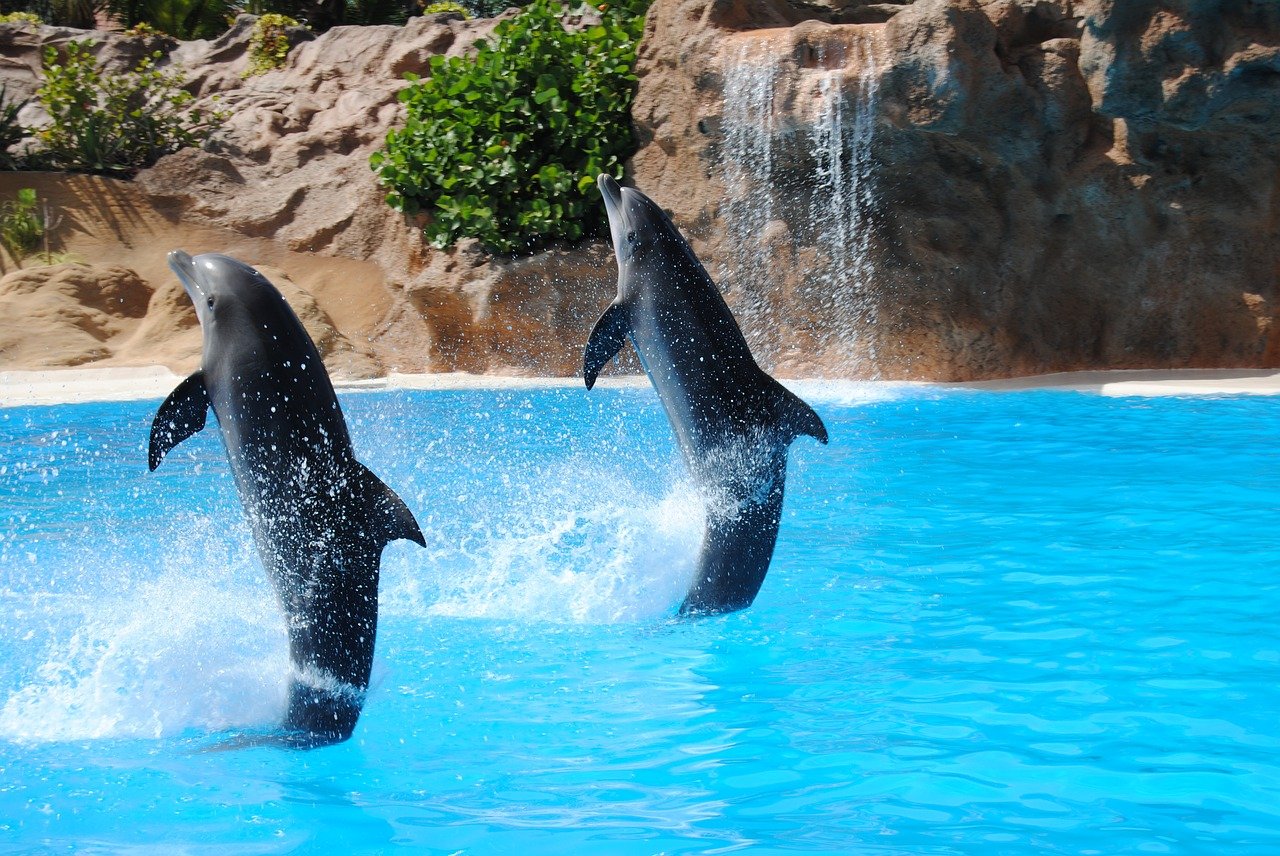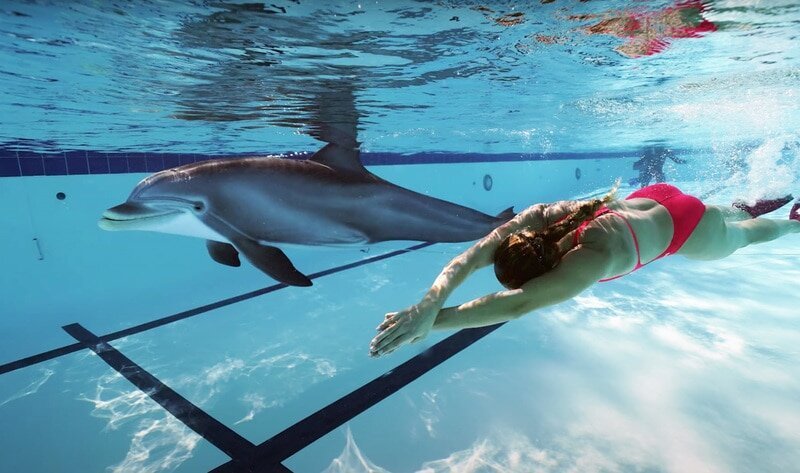SeaWorld Criticised For Sending “Rescue” Dolphins to Abu Dhabi
Animal welfare campaigners have blasted SeaWorld for “secretly” sending 24 dolphins, including two who were rescued from the wild, to a new entertainment park rather than to a sanctuary.
Animal welfare campaigners have blasted SeaWorld for “secretly” sending 24 dolphins to live on public display in a new park in Abu Dhabi.
SeaWorld has been accused of exploiting the dolphins by sending them to live in captivity at SeaWorld Abu Dhabi, rather than granting them their freedom to live in a sanctuary.
“If these dolphins are healthy enough to be shipped around the world, they’re healthy enough to be released to coastal sanctuaries,” says PETA Executive Vice President Tracy Reiman.
The 24 captive dolphins have been sourced from SeaWorld parks in the US. Among these dolphins are so-called “rescues”, including Alice who was taken from the wild back in 2007.
“Only a sham ‘rescue’ would use a wild dolphin who needed help as a breeding machine and force her to perform tricks in a concrete pool a world away, and PETA is urging the public to stay away from SeaWorld’s abusement parks”, PETA’s Tracy Reiman added.
In their natural environment, dolphins swim up to 60 miles per day in family pods. But in captivity, dolphins are often held in cramped barren tanks and kept in artificial social groups.
Animal welfare groups say holding dolphins in captivity does not meet the marine animal’s psychological and physiological needs, which causes tremendous stress and can result in painful ulcers and infections.
The popularity of SeaWorld in the West has declined in recent years as part of a broader public turn against keeping the likes of orcas and dolphins in captivity.
The shocking 2013 documentary Blackfish initially brought mainstream awareness of the suffering that orcas go through to be forced to perform at SeaWorld parks. Since then, the brand has been plagued with public criticism of its animal welfare and has been dropped by major tour operators including Virgin Holidays and TripAdvisor.
As a result of the downturn, SeaWorld has looked towards other emerging markets including the Middle East, where its new site in Abu Dhabi will reportedly become the largest aquarium in the world when it opens next year. Alongside the 24 dolphins, the park will also hold over 150 other species of marine animals and birds including sharks, sea turtles, and penguins.
Do Dolphins Have a Future in Aquariums?
Progressive marine parks are exploring new ways to create ethical and sustainable attractions that avoid using animals.
One cutting-edge technology company has even launched a particularly futuristic alternative: a hyper-realistic robotic dolphin.
The creation mimics the look and movements of its real-life counterparts and has the exciting potential to usher in a sustainable new era for animal tourism.
Edge Innovations, the company behind the groundbreaking design, say that the robots “can work all day long, don't need food and don't mind taking endless selfies with visitors. They can run for 10 hours without charging, with a 10-year lifespan living in saltwater together with live fish!”.
The robotic dolphin in action. Credit: Edge Innovations
And as Miami Seaquarium, Sea World and other marine parks face increasing criticism for continuing to subject dolphins and other marine animals to a lifetime of captivity, governments around the world are beginning to implement bans on keeping cetaceans in aquariums.
Back in 2019, Canada passed the “Free Willy bill”, which prohibits the trade, possession, capture and breeding of whales, dolphins, and porpoises. The bill effectively ended the practice of using these cetaceans for entertainment in the country.
We Have A Favor To Ask…
Species Unite amplifies well-researched solutions to some of the most abusive animal industries operating today.
At this crucial moment, with worldwide momentum for change building, it’s vital we share these animal-free solutions with the world - and we need your help.
We’re a nonprofit, and so to keep sharing these solutions, we’re relying on you - with your support, we can continue our essential work in growing a powerful community of animal advocates this year.
More stories:
Species Unite
A collection of stories of those who fight the good fight on behalf of animals.






Evaluating drugs with cutting-edge technology instead of animal testing will improve drug safety and cut development times, the agency said as it reveals a roadmap to increase non-animal research techniques.